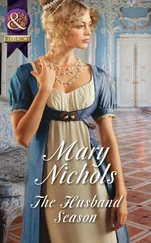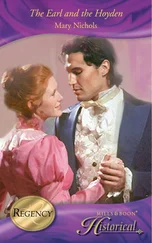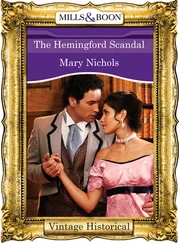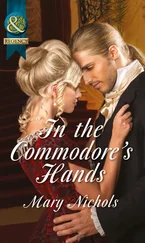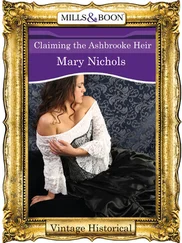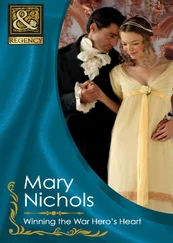‘So there is if you are averse to balls and tea parties and being sought after by all the beaux of the ton.’
‘I want to do something practical, something I’ll be famous for. The woman who discovered a new plant, hitherto unknown to man.’
‘Pigs might fly!’
‘That’s what you dream of and I know you mean to try and make it come true.’
‘I’m a man.’
There was no answer to that and she stood up and brushed crumbs of soil from her breeches. ‘I must go. My uncle James is coming on a visit and I have to change.’
‘The Duke of Belfont,’ he murmured. ‘I should think he’d have a fit if he could see you now.’
She laughed and hurried out of the building and along the path that led back to the house.
It was all very well to dress eccentrically in the confines of the grounds around Beechgrove—breeches and a shirt were far the most practical attire for gardening—but she knew that it was hardly the apparel for a nineteen-year-old brought up in polite society. Her mother had long since given up remonstrating with her, asking only that she never appeared in public thus dressed and certainly not before her uncle, the Duke of Belfont. Uncle James never forgot his rank and took his role as guardian very seriously. To Beth and her sister he was a stern disciplinarian, though Mama said that was only his way and he wanted to do his best for his nieces. And today he was coming to make the arrangements for that dreaded come-out.
‘Harri, can that be Elizabeth?’ James was standing in the back parlour of Beechgrove, which looked out on the terrace from which steps led to well-manicured lawns and flower beds bright with the yellow of daffodils and the amber of gilly flowers. Beyond that, though it was hidden by a shrubbery, he knew there was a walled kitchen garden and a row of greenhouses and outhouses. It was from that direction the figure on the path had come.
Harriet left the tea tray over which she had been presiding to come and stand beside him. ‘Yes, I am afraid it is.’
‘Good God!’ He watched as Beth strode down the path, head thrown back, arms swinging; if it were not for her feminine curves, he would have taken her for a boy.
‘She likes to help in the garden and that is by far the most practical mode of dress. She is decently covered and can move about without snagging her garments on thorns and suchlike. We should be for ever mending if—’
He turned towards her. ‘Are you telling me you allow it?’
‘Yes, so long as she stays in the garden and we have no guests.’
‘Then it is as well I am here. The sooner she is installed at Belfont House and taught how a young lady should dress and behave the better.’
‘James, she knows perfectly well how to dress and behave. You are being unkind to her.’
‘And how do you suppose a prospective husband would react if he could see her now?’
‘But there is no one here, certainly not a prospective husband.’
He sighed and returned to his seat. ‘Oh, Harri, why did you not marry again? You would never have had this trouble if there had been a man in the house.’
‘I am not having trouble, James. You are making a mountain out of a molehill. And I did not wish to marry again. And as for a man, why would I want one of those, when I have you?’
He laughed suddenly; it lightened his rather stern features and made him look more like the boy she had grown up with, before he had unexpectedly been forced to take on the role of Duke and head of the family. ‘And what about Olivia? Is she dressed like the potboy?’
‘No. She has gone riding dressed in her green habit.’ She smiled. ‘Very decorous it is too.’
He accepted a cup of tea from her. ‘Then what about bringing them to Belfont House for the Season? You used to come every year before I married Sophie.’
‘You needed me to act as your hostess, but, now you have Sophie, you don’t.’
‘Come as our guests. Sophie will enjoy your company and we can give the girls a Season to remember.’
‘Thank you, James. Let’s put it to the girls over dinner.’
Put it to the girls, he mused, as if they would be allowed to veto the suggestion. He decided not to comment.
When the two girls appeared at the dining table, they were dressed decorously. Beth’s gown was in deep rose-pink silk with a boat-shaped neck, which emphasised her smooth shoulders and long neck. The waistline, in its natural place, was encircled by a wide ribbon. Her hair had been brushed and coiled on top of her head. Livvy was in a blue gown that almost exactly mirrored the colour of her eyes. It was trimmed with quantities of matching lace. They curtsied to their uncle. ‘Good evening, Uncle,’ they said together.
He bowed slightly. ‘Elizabeth. Olivia.’
‘Oh, we are in for a scolding,’ Livvy said, as they took their places at the table and the maids moved forward to serve them. ‘His Grace is being formal.’
In spite of himself, James laughed. ‘Not at all, but you are both young ladies now and must be treated as such.’
‘Does that mean we are to be given more freedom?’ Beth asked.
‘What can you mean, more freedom?’ he queried. ‘You are not confined, are you? You may come and go within reason. I go so far as to say you are allowed far more licence that most young ladies in your position.’
Beth realised that he had seen her coming back to the house, in spite of the care she had taken to come in by the kitchen door and take the back stairs to her room. It probably meant her mother had been scolded about it and she was sorry for that. How she hated the unnatural manners of society, which dictated how she should behave. If she had been a boy…She smiled to herself; she would be Sir Something-or-other Harley, baronet and master of Beechgrove.
It was a large solid house, built a century before in rich red brick. She loved it, she loved everything about it, its nooks and crannies, the huge kitchens, the gleaming windows, the mix of old and new furniture, the surrounding gardens, particularly the gardens, which people came from miles to see and admire. Beth had jokingly suggested they ought to charge them for the privilege, but her mother had been horrified at the very idea. It was their duty to be hospitable, she said.
‘You are smiling,’ her uncle commented, while her mother picked at the fish on her plate. ‘Will you share the joke with us?’
‘I was thinking what it must be like to be a boy.’
It was the wrong thing to say because it reminded him of what he had seen. ‘Elizabeth, you are not a boy, you are a young lady, and wearing male clothes will not make you one. Where did you get them from?’
‘I found them in the attic. I believe they belonged to Papa before he went into the army. He must have been quite slender then, for they fit me well enough.’
That was what she reminded him of when he had seen her in the garden: her long-dead father. She had the same proud walk; had Harriet noticed it too? Was that why she had allowed it, to bring back a little of the husband she had lost or perhaps conjure up the son she had never had but had always longed for? ‘I think it is time you had a Season and learned what is expected of you,’ he said. ‘You, too, Livvy. Naturally, I shall sponsor you both.’
‘Oh, that means every impoverished bachelor in town will be all over us,’ Beth said. ‘The famous Harley girls, nieces to the Duke of Belfont, on the marriage mart, the objects of every rake, gambler and spotty young shaver who fancies his chances. It will be hateful.’
‘You must have a very poor opinion of me if you think I will allow that to happen,’ he said. ‘You will be protected from the undesirable—’
‘And from anyone in the least bit interesting too.’
Читать дальше


